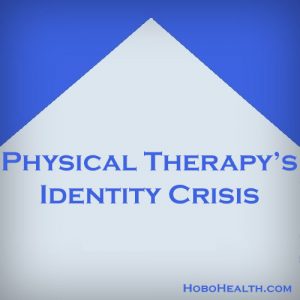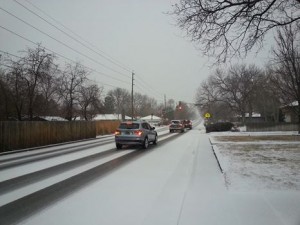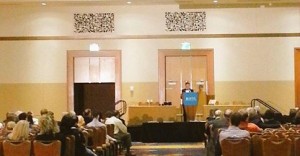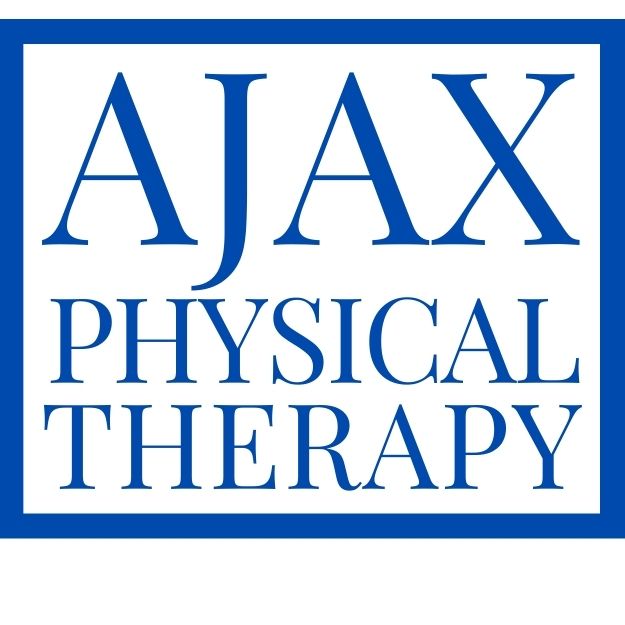 I have recently heard a lot about “physical therapy’s identity crisis”. That phrase, “identity crisis,” is uttered by those I know personally, by other leaders in the profession, and by PTs across the interweb. Collectively, we have labelled ourselves as having no consensus on what our role in health, wellness, and prevention. There’s in-fighting about the superiority of treatments centering on pain theory, manual therapy, movement science, and other guru-isms that insist, of course, their way is the best way. But, I don’t think we have an identity crisis. We firmly know who we are and what we do – we may have varied methods of treating our clients, but we do have a central, shared focus. I personally believe our percieved identity crisis has everything to do with a large part of our profession not owning their level of expertise, being shy to demonstrate their full expertise to patients and colleagues, and as cliche as it is, not “being the change”.
I have recently heard a lot about “physical therapy’s identity crisis”. That phrase, “identity crisis,” is uttered by those I know personally, by other leaders in the profession, and by PTs across the interweb. Collectively, we have labelled ourselves as having no consensus on what our role in health, wellness, and prevention. There’s in-fighting about the superiority of treatments centering on pain theory, manual therapy, movement science, and other guru-isms that insist, of course, their way is the best way. But, I don’t think we have an identity crisis. We firmly know who we are and what we do – we may have varied methods of treating our clients, but we do have a central, shared focus. I personally believe our percieved identity crisis has everything to do with a large part of our profession not owning their level of expertise, being shy to demonstrate their full expertise to patients and colleagues, and as cliche as it is, not “being the change”.
10 years ago, we were a profession in flux. I was graduating with my Master’s degree from Northeastern University and almost immediately re-enrolled for my transitional Doctorate, because that’s where the profession was headed. Since the 90’s, things have moved very quickly for our profession from a role as a technician, carrying out Doctor’s orders, to an autonomous profession evaluating patients and safely dictating our own treatments. In a span of about 20 years, universities have propelled us from a 4 year undergrad education to a point where all PT students are trained as DPTs. This relatively quick transition from a 4 year education to a 7 year education did leave us poorly defined for a period, because our knowledge and role did change over that time. Now, it’s about time we get over it. As a profession, we are not at all confused about who we are anymore. APTA’s branding project has been proclaiming since 2009 that we are the human movement experts. The Guide and Vision 2020 had earlier defined what it is we do on a daily basis with our patients and clients. No matter your practice setting or population, human movement is central to your practice – occupational health, sports medicine, acute rehab – even in the realm of cardiopulm, the human body’s ability to move blood and air are central to care. There are some specializations and niches in PT that start to stray from the precise phrase “human movement” – i.e. wound care or veterinary care – but human movement is truly at the core of what the vast majority of Physical Therapists do at work on a daily basis.
So we have had a defined identity for the better part of a decade, why do patients continue to come into the clinic surprised at our education level? Because as individuals, not as a profession, we have refused to embrace the DPT and everything it stands for. I know that somewhere, right now, there’s a private practice owner griping about a patient who has come in expecting to get a massage. This weekend, that same private practice owner will go to a 5K race and give simple, boring, unskilled massages! This is the kind of thing that kills us. Stop giving massages at road races – why not offer gait analyses instead? Or offer mini-consults for ongoing injuries, which there are plenty of in the 5K community. Injury prevention, nutrition, running gear, pain – these are all topics we can consult on with authority. If you give massages at a race, then that is the snapshot of your practice that you are displaying to your community, and people will continue showing up at your door expecting nothing more than a massage. I’m sure you can get more creative with what your practice can do to engage your own community than I can, but please, stop giving massages at races – that’s not Physical Therapy!
We need to be shouting our knowledge from the mountain tops in all of our own communities. Get interviewed on local access cable about injury prevention, write letters to your local and not-so-local papers every chance you get, throw a fit every time physical therapy is forgotten on a TV show, radio program, or news article when we are the experts that should be leading the conversations on musculoskeletal health, not an afterthought. Get verbal, show off your knowledge. Participate in community planning to advocate for healthy and accessible community planning. Even as a traveling PT who is only in communities for a short time, I have hopped on local cable, written letters to local papers, and encouraged others in the community to contact their congressional representatives on topics that matter. It doesn’t take a whole lot of effort to positively and productively promote PT in your community.
Why are we so scared to call ourselves Doctors? I don’t know, but I’m as guilty as anyone else of shying away from routinely using my earned title. We really, really need to embrace “Doctor”, we have each earned it. The Chiro’s sure don’t shy away from the term, and we’re a lot more qualified in providung safe musculoskeletal care than they are. Ever thought twice before calling your Psychologist, Optometrist, or Dentist “Doctor”? These are all non-MD clinical Doctorates – the same as the DPT. In education, even High School, teachers with a Doctoral degree are called Doctor. I really don’t know what our problem is, but we each individually, and collectively, need to get over our phobia and embrace our advanced level of education that matches and surpasses plenty of other professionals who have no qualms with being called Doctor.
Stop looking to leadership for answers on what our role is. Stop looking to APTA to make that one Suberbowl ad that will change the world’s knowledge of PT – that’s not how this works. It’s time more individual clinicians embrace the unique and unmatched work they do in the clinic everyday and demonstrate it to their external community. There are many communities across the country where people do think of their Physical Therapist first when they have an injury. If you think we have an identity crisis, it’s time you changed your identity in your own community. That’s how this works.





